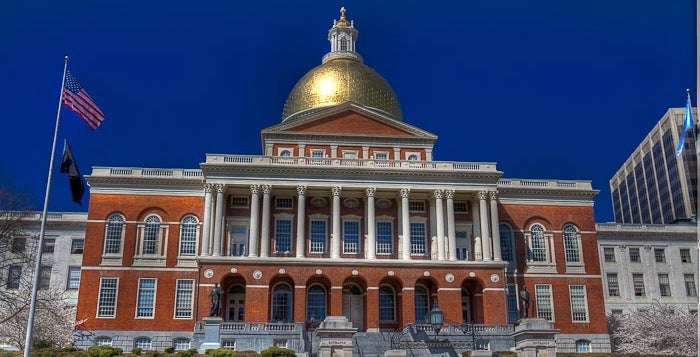An unusual thing happened at a recent lobby day on Beacon Hill: local officials gathered before elected officials and talked about a two-year-old community investment tax credit without asking for anything.
The idea, according to Massachusetts Association of Community Development Corporations President Joseph Kriesberg, was to thank legislators for passing the community investment tax credit in 2012 and to let them know about its impact since it was implemented statewide in 2014.
The goal of the credit is to attract private investment in community development corporations (CDCs), which are often focused on improving low-income neighborhoods, by enabling donors to receive a 50 percent refundable state tax credit for donations to CDCs.
In 2014, its first year, the credits generated $4.7 million. Last year, the credits attracted $8.3 million, according to a newly released survey of CDC members, “making it the largest CDC capacity building program in Massachusetts history.”
More than 1,000 of the over 1,500 donations made to 48 organizations in 2015 were from individual donors, who gave a cumulative total of $3.2 million.
Before the credit was launched, CDC officials say they received few donations from individuals, relying mostly upon government, foundation and corporate funds. Kriesberg told the News Service the credit has been transformative, with many donors who used to give $100 now giving $1,000 — stabilizing funding at CDCs and enabling them to move past survival mode and towards achieving their goals.
Joanne Campbell, executive director of the Northampton-based Valley CDC, which serves Northampton, Easthampton, Amherst, and Hadley, called the tax credit a “real game-changer.” Her CDC was raising about $7,000 before the tax credit, she said, but was able to raise almost $215,000 with it on the books, enabling it to meet payroll more easily and advance affordable housing and home ownership efforts.
“All these great things are happening across the state with numbers increasing and more capacity,” Campbell said.
The CDC association has been surveying its members each year since 2003. The latest results show its members in 2015 set records in four categories — housing, job opportunities, families served and community investment. Association members reported building or preserving 2,055 homes, an aggregate $859 million in investments, and 6,680 job opportunities created or preserved.
Included in a job creation law in the summer of 2012, the credit was set up by the Legislature and former Gov. Deval Patrick with a six-year sunset clause, which means it expires at the end of 2019.
Kriesberg told the News Service the CDC association will eventually press for passage of legislation extending the credit, potentially in 2018. The survey, he said, shows its positive impact in communities.
“The state is losing $4 million but the impact in the Commonwealth is twice that,” he said.
Association board chairman Robert Corley, who is executive director at NeighborWorks of Southern Mass, told CDC officials at a May 3 lobby day that the organization’s officials had met privately with Gov. Charlie Baker that day and Baker expressed his commitment to the issues the association cares about.
“It was an excellent, excellent meeting,” Corley told CDC officials.
Baker supports the tax credit, Kriesberg said. “The governor has been supportive from the day he learned about it,” he told the News Service.
At their lobby day, CDC officials walked to the microphone to describe the tax credit’s impacts, from helping to create a loan pool to acquire distressed properties to building affordable housing for seniors, hiring community organizers, expanding school readiness programs and launching a community center.
Undersecretary of Housing and Community Development Chrystal Kornegay also referenced the meeting with the governor and described the tax credit as a “tool” that CDCs can use to engage businesses in community development initiatives.
“I love hearing the stories about how it’s playing out in communities,” Kornegay said, adding: “The one thing we know how to do is go chase money.”
Speaking in general terms to the impact of the tax credit, Sen. Kathleen O’Connor Ives (D-Newburyport), co-chair of the Legislature’s Community Development and Small Business Committee, hailed the locally-driven nature of CDCs and the partnerships they create.
CDC officials say they have a meeting planned later in May with Attorney General Maura Healey.

